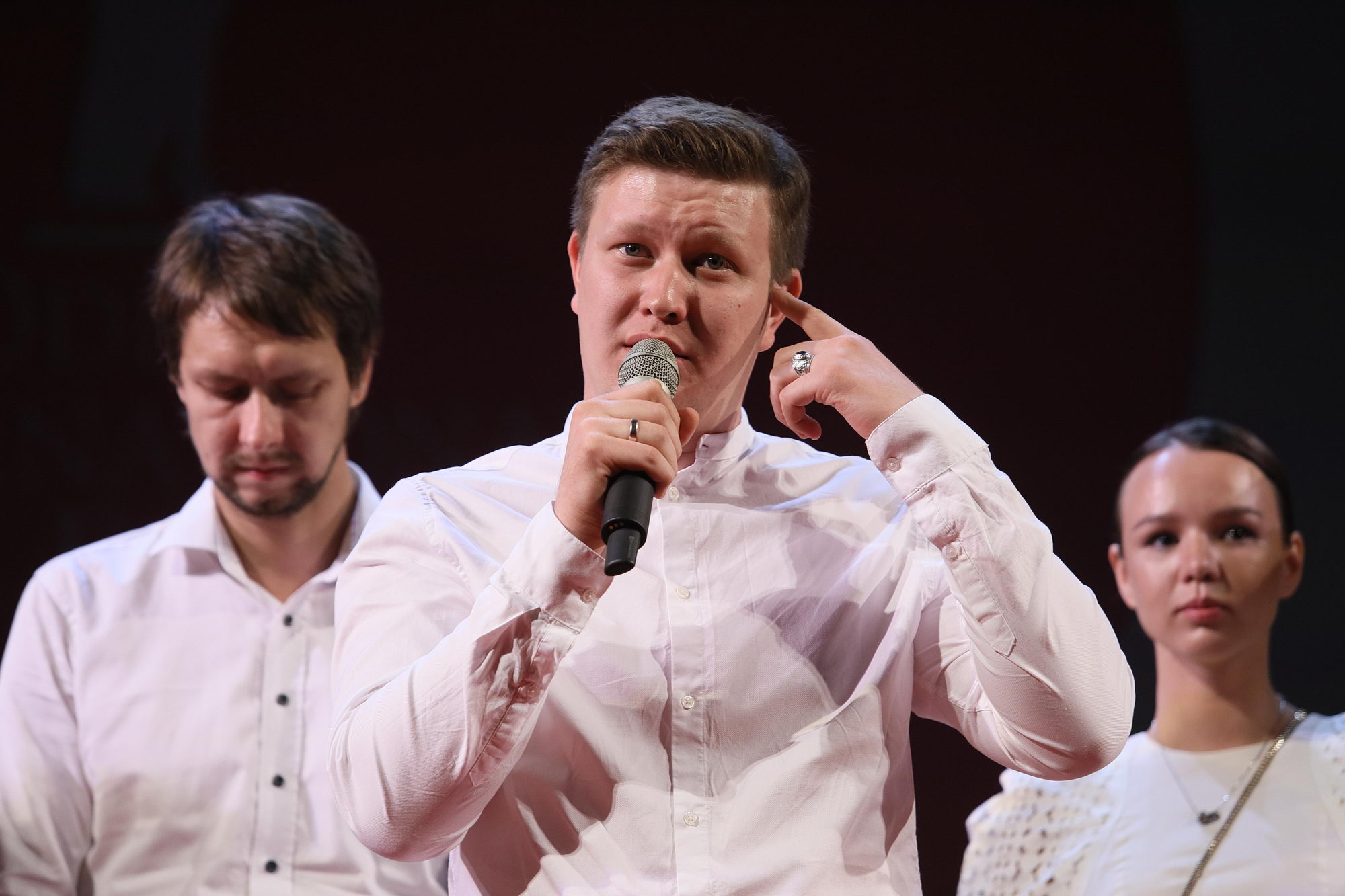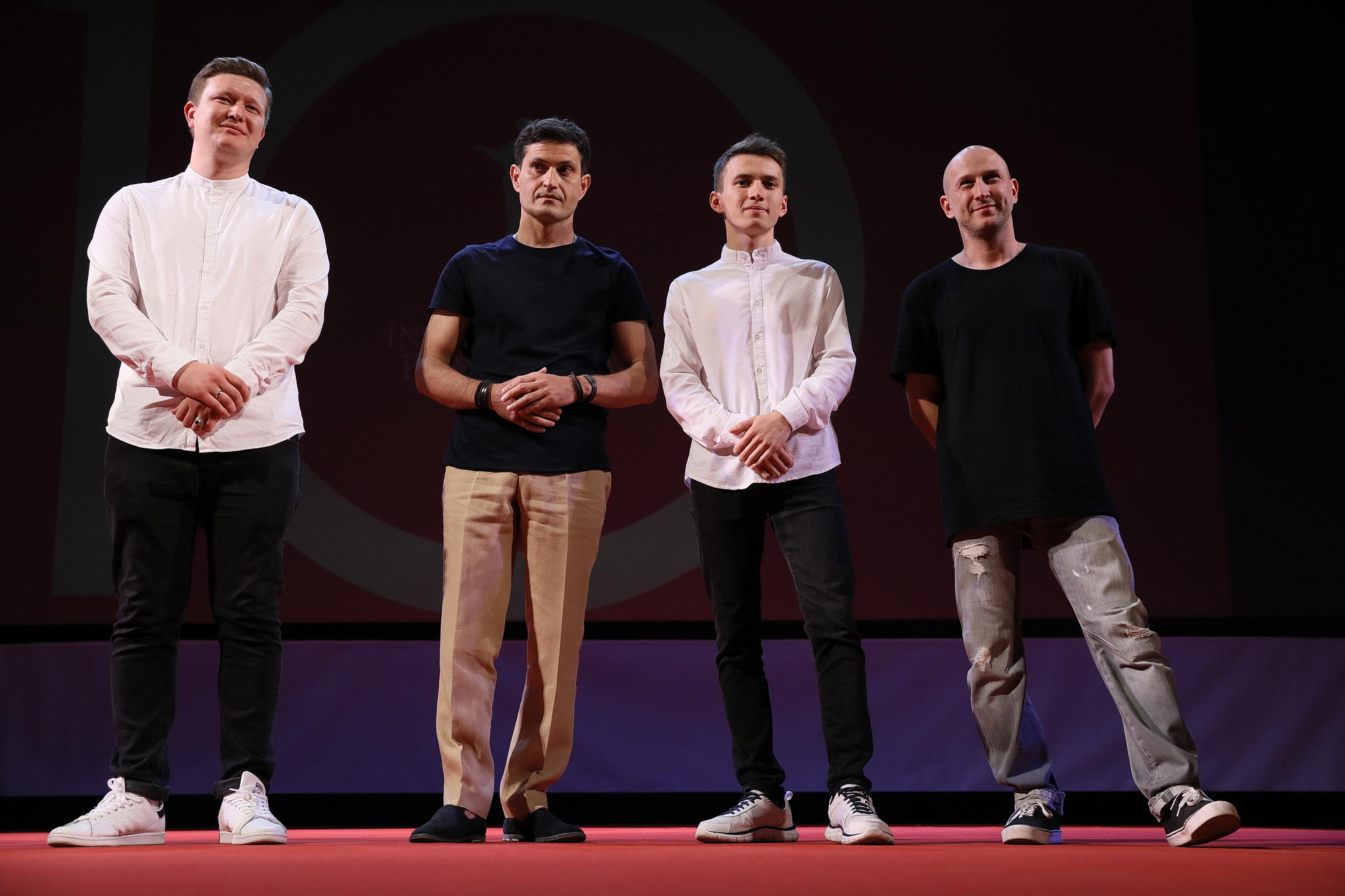On the surface, the drama “Homeward” seems to focus on one family’s tragedy. In reality, however, the film offers a wider look at the long-standing struggles of the Crimean Tatars, the indigenous people of Ukraine’s Crimean peninsula.
“It’s a big tragedy of small people,” director Nariman Aliev told the Kyiv Post.
Aliev would know. He is Crimean Tatar himself and his film has become one of the year’s biggest hits in Ukrainian cinematography.
“Homeward” is the director’s feature film debut. It premiered at the Cannes Film Festival in May and was first presented in Ukraine at the 10th Odesa International Film Festival on July 14, where it received a standing ovation.
“Homeward,” or “Evge,” as it is titled in its original Crimean Tatar, shared the main award of the festival, the Grand Prix of the international competition program, with Swedish-Georgian drama “And Then We Danced.”
Now, “Homeward” will hit cinemas across Ukraine on Nov. 7. There will be some screenings with English subtitles in Kyiv. The film will also have a broad international distribution in Europe and China. Screening in North America is still under discussion.
“Homeward” tells the story of a Crimean Tatar family in modern Ukraine whose oldest son, Nazim, is killed in Russia’s war against the country.
His father, Mustafa, who lives in Russian-occupied Crimea, comes all the way to Kyiv and is determined to bring Nazim’s body back to Crimea and bury him in his homeland. Mustafa forces his younger son, Alim, who studies in Kyiv, to accompany him on a mourning road trip across central Ukraine.
The film brings together well-known Crimean Tatar actor and director Akhtem Seitablayev as the patriarchal, rough and uncompromising Mustafa and newcomer Remzi Bilialov — Aliev’s cousin — as student Alim, who comes to understand his roots in the course of the journey.
Seitablayev was first offered a different role in the film — with his busy schedule, the team producing “Homeward” didn’t expect him to have much spare time for the film. But the actor was so impressed with the script, which he read in one sitting, that he offered to play the leading role himself.
“First of all, I am Crimean Tatar and I relate to many parts of this story,” Seitablayev said during the presser at the film festival in Odesa.
Additionally, the actor says that the patriarchal model of relationships between the main characters reminded him of his own relationship with his father.
“When what a father says must be done without discussion, it often leads to a child being afraid of talking to their dad,” Seitablayev says.
Swirling emotions
The idea to depict the journey to bring a loved one’s body home belongs to Aliev’s colleague, Azerbaijani director Novruz Hikmet. Aliev instantly understood how to tell the story in the Crimean Tatar context, so Hikmet let him use it.
That context was that, for Crimean Tatars, it can be quite a challenge to return home due to border restrictions imposed by Russia since it occupied Crimea in 2014. That creates obstacles that test the film’s main characters on their journey to Crimea.
In creating “Homeward,” the filmmaker brought together his experiences and observations of Crimean Tatar families being separated by the Russian border, disagreements within his people’s community and, something very personal: the death of his cousin in an automobile accident.
“I conveyed the emotions that have been swirling in me, of a certain defeat, hope, tranquility, when you are alone in the whole world,” he says.

The director of the film “Homeward,” Crimean Tatar filmmaker Nariman Aliev, talks to the viewers at the Q&A session after the movie screening at the Odesa International Film Festival on July 14, 2019. (Oleg Petrasiuk)
Aliev co-wrote the script for the film with Ukrainian filmmaker Marysia Nikitiuk, who had her directorial feature film debut with drama “When the Trees Fall” last year.
He says he didn’t feel confident enough to write the screenplay on his own and wanted someone to have a look at his draft from a different point of view.
“There is no school of dramaturgy and screenwriting in Ukraine,” Aliev says. “Everyone is learning this now, and that’s why such collaborations between young people are natural,” Aliev says.
The director eventually had not only Nikitiuk to improve the script, but also a whole team of professionals from Midpoint, a training and networking platform for script and project development operating under the auspices of the Academy of Performing Arts in Prague, Czech Republic.
Midpoint has selected “Homeward” for one of its programs for emerging filmmakers.
The picture’s producer, Volodymyr Yatsenko, says that it let the film team test different endings for “Homeward” and select the best one.
“By the time we started shooting, we had a clear understanding of what we want, having overcome the doubts we had,” Yatsenko said at the film’s premiere.
Crimean Tatars
Few films focusing on Crimean Tatars have been made in Ukraine. As a result, “Homeward” performs the important task of helping introduce Crimea’s indigenous population to a broad audience.
The film presents the culture of the ethnic group, but does so within the film’s overall tragic tone. For this reason, it mostly focuses on the Crimean Tatars’ religion, Islam, and their mourning customs.
In one scene, Mustafa stops Alim from playing music in the car, as it is believed that mourners should not enjoy any kind of entertainment. Just like the main characters, Aliev follows this custom and includes no music throughout the film.

From left: The director of the film “Homeward,” Nariman Aliev, actors Akhtem Seitablayev and Remzi Bilialov, producer Volodymyr Yatsenko talk to the viewers at the Q&A session after the movie screening at the Odesa International Film Festival on July 14, 2019. (Oleg Petrasiuk)
Most clearly, the film introduces its audience to the Crimean Tatar language. The film is shot entirely in Crimean Tatar, except for a few scenes featuring Ukrainian and Russian. In Ukraine, “Homeward” will be shown with Ukrainian subtitles, rather than dubbing — which is usually used when distributing films in other languages in Ukraine.
“It is part of the education, showing what the Crimean Tatar language is like, with its own melody and poetry, so that people can at least hear it,” Aliev says.
Numbering at around 300,000 people in Ukraine, Crimean Tatars have long struggled to preserve their culture.
In 1944, Soviet authorities deported the entire Crimean Tatar population from the peninsula to Uzbekistan, another soviet republic. They were forbidden from returning home for almost half of a century. As soon as the ban was lifted in 1989, many Crimean Tatars left everything behind to return to their homeland.
Aliev says that his parents were born in deportation. They returned to Crimea as middle-aged people and started their lives from scratch.
“Not every person will do that, even in a comfortable situation. And they had no welcoming opportunities here,” he says.
Because of their traumatic experiences, older generations of Crimean Tatars hold to conservative views. They often disapprove of marriages with those outside the ethnic group and find it difficult to understand youths that leave the peninsula.
Aliev says that the younger generation born in Crimea, which has never faced the struggles of its parents and grandparents, is more open to the rest of the world. He presents this conflict as another modern challenge for the Crimean Tatar people.
In “Homeward,” Mustafa stops communicating with both his sons when they move to Kyiv. This leads to an absurd situation in which he does not even know what degree Alim is pursuing and has never met Nazim’s fiancee until he is killed in the war.
Aliev did not hope to educate the entire world about the history of the Crimean Tatar people with “Homeward,” a nearly impossible task for one feature film. However, the director says that he tried to maintain a balance between the narrative and the context. He hopes that, first and foremost, the viewers will perceive the film emotionally.
“And if those people unfamiliar with the context will have a desire to learn more, we will be happy and, I think, we will have reached our goal.”
